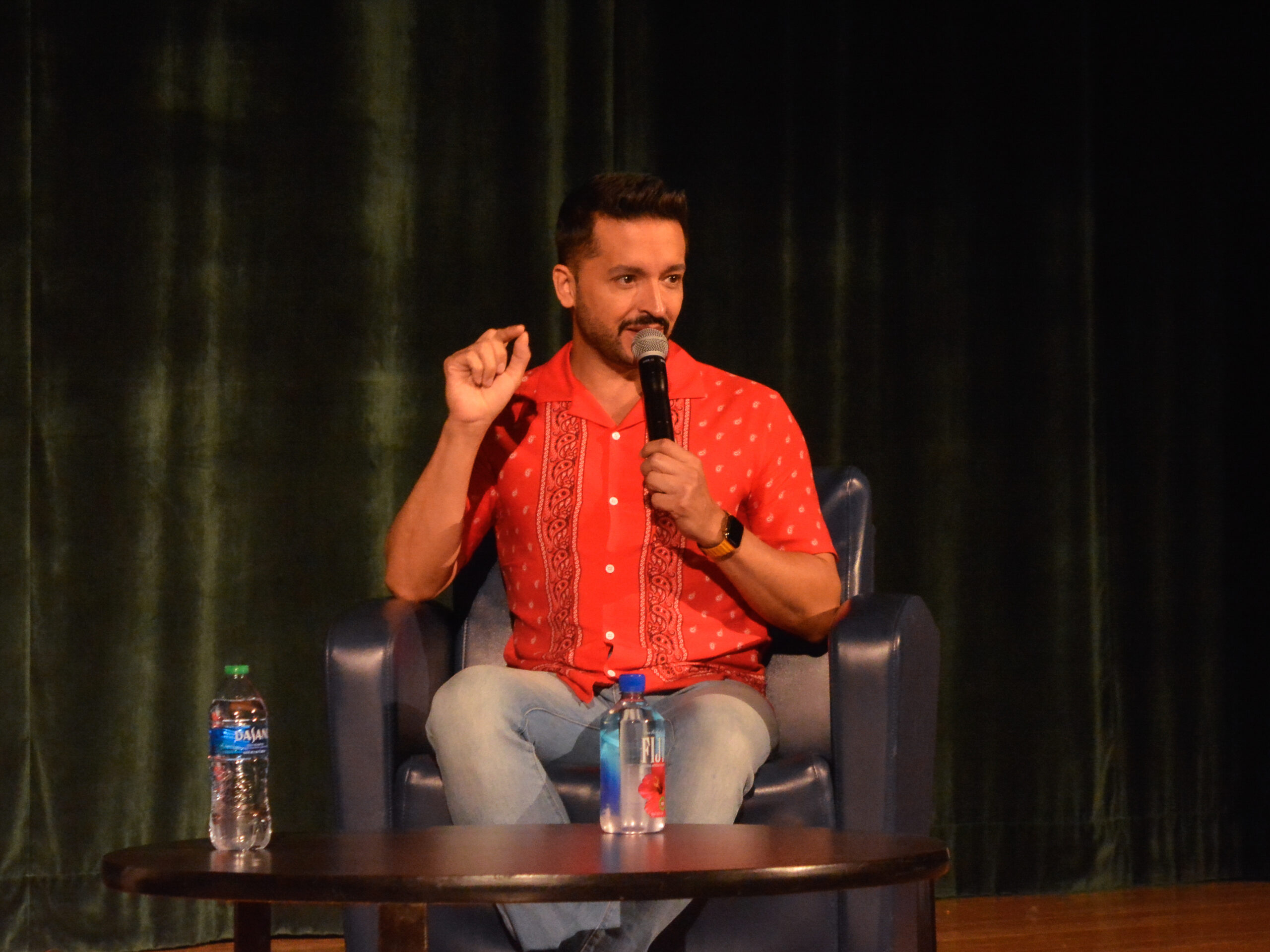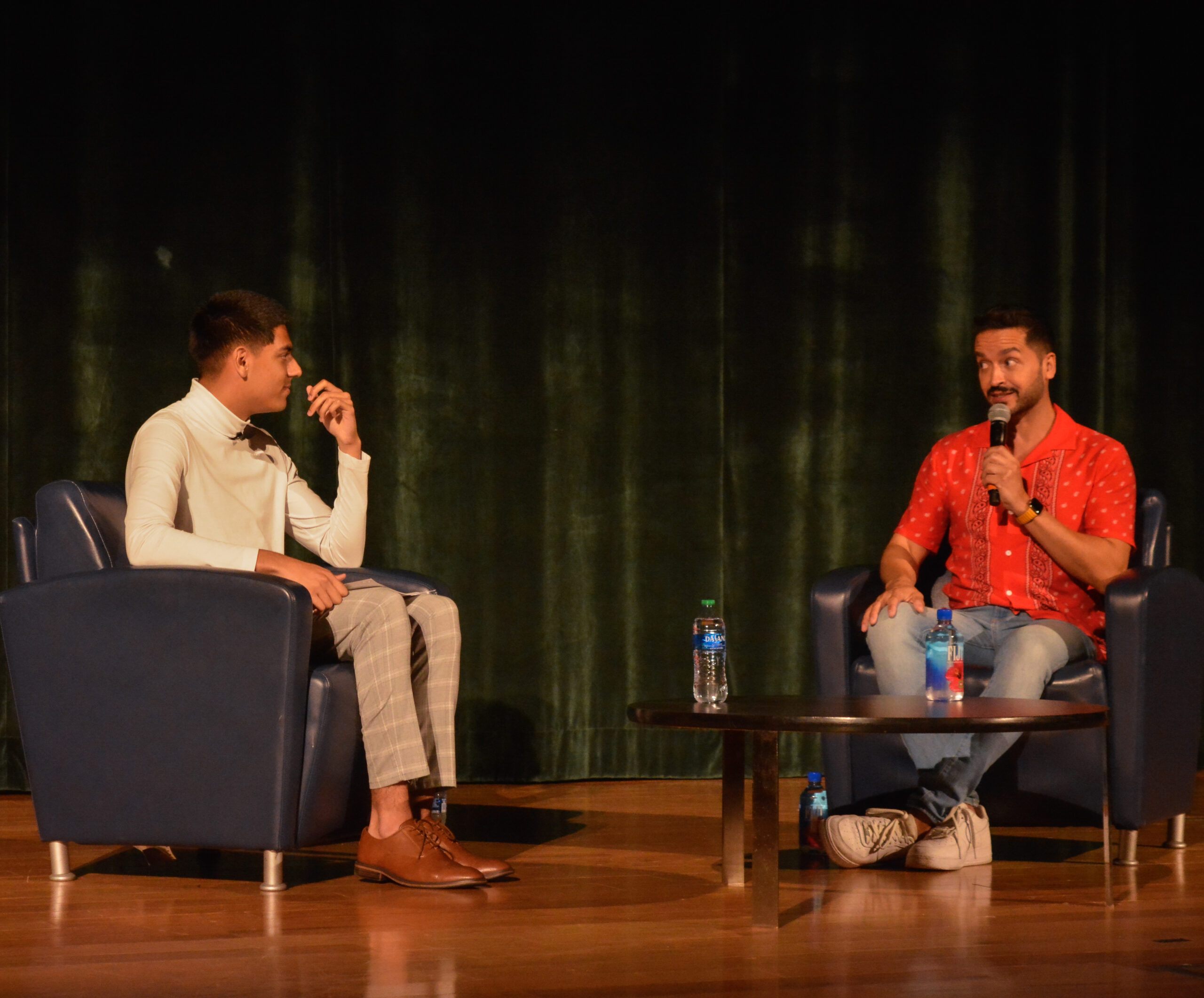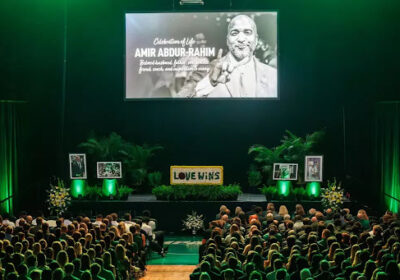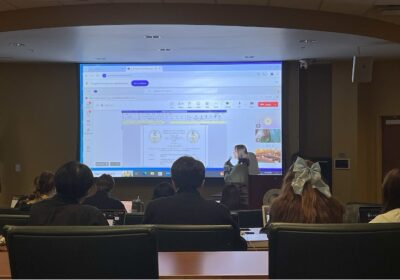Jai Rodriguez promotes representation, HIV/AIDS prevention at ULS

When Jai Rodriguez arrived on the set of Fantasy Island, he was surprised to see that some of the other actors were also Latino. This was the first time this had ever occurred in his career and marked the growing change in media.
“I’m really thankful that your generation expects and demands more and that you’re not afraid of saying so, loudly,” he said. “People in charge listen, and where there’s demand for representation, people have to bend to that and be more conscious about their conviction of these characters and empower the actors with the lived experiences to share our history of these characters.”
After a monthlong delay due to Hurricane Ian, actor and musician Rodriguez shared his life experiences and advocated HIV/AIDS prevention at Thursday’s University Lecture Series.
He brought laughter and applause to an audience of about 40 people inside the Marshall Student Center Oval Theatre during the hourlong Q&A-style lecture led by Cristian Barbosa, Office of Multicultural Affairs LGBTQ student ambassador.

When asked what advice he would give to his younger self, Rodriguez joked that he felt like he was talking to a younger version of himself. Much of the conversation started with Rodriguez sharing his experiences of being Latino and spreading awareness of HIV/AIDS.
“I should have come in with a stronger sense of self, not arrogant, not boastful, but to know who the hell you are,” he said. “So my message to younger me, and to you, is don’t be afraid of standing up for what you believe is right.”
Many times during the lecture Rodriguez discussed the change that is being made in the future generations to be more accepting of others.
“You grew up expecting and demanding equal respect, which is brilliant,” he said. “At our time, so many of us were fighting the fight and getting nowhere.”
Rodriguez’s struggles of being a minority, both Latino and queer, have impacted his career in numerous ways, such as being the “center fold” of a magazine and being placed in the seat farthest away from a talk show host.
“When you were an other, or a person of color, or LGBTQ+ back then, you felt so guilty for standing up for yourself,” he said. “I’ve gotten fired from jobs when I was like ‘I don’t think you should say that because it doesn’t reflect our community in the best light.’”
It was during a Thanksgiving dinner that Rodriguez’s aunt revealed to their family that she and two of her children were HIV positive. Rodriguez expressed what being an advocate for HIV/AIDS prevention meant to him by retelling accounts of his aunt’s struggle of being HIV positive.
“She opened it up [her mother’s day gift] and she had a pink sweater and pink sweatpants, and my aunt started weeping … and she said ‘you’re treating me like a patient, not a person,’” he said.
There are many stigmas that people of color face when discovering they are HIV positive, Rodriquez said. One of the stigmas he addressed was that after a person of color finds out they are HIV positive, they are less likely to schedule a second appointment with a doctor because they feel ashamed.
“The stigma of the idea of being positive is so prevalent and powerful that it keeps people sick because of the shame,” Rodgriguez said.
He works for charities such as Project Angel Food and Covenant House to aid those who are HIV positive or young and homeless.
The last 15 minutes of the lecture was dedicated to an audience Q&A, and the questions ranged from how to combat stigmas surrounding race, to how to be comfortable in one’s own style.
“Part of me is like I know you [his family] care, you don’t want me to struggle. But you know… that fire that is in you, that is not going out anytime soon,” he said. “When you put one foot in front of the other, and continue to push forward, our commitment to our dreams and passion become so apparent to everyone else.”






